7/24/2020
Re-watching Wii no Ma while sewing, the now-defunct video channel on the nintendo console. Bursting with sentimentality, it's a portal to people's lives through their labor. Like a more personal How's it's Made. Just wonderful. The uploader has a macro fetish.
8/7/2020
The Azumanda Daioh anime is actually quite surreal, with odd pacing and the baffling OP/ED theme selections. Some shows are very explicit in their 4koma roots like Yuyushiki, but this one is just strange. The fishing anime is fine.
8/13/2020
Spent an hour on god's domain watching Fragtime
, a deliciously unsavory hour-long anime. It's significant in that none of the characters are likable into the tail end of the movie, which is quite the accomplishment. For once the brief synopsis lives up to expectations. Also watching Liz to Aoi Tori
, absolutely gorgous and similarly gay but the voice acting doesn't quite hit its mark.
10/22/2020
Addicted to watch me eat
and wrecklesseating. Watching Way of the Househusband, I think I'd enjoy the manga more. Hiroshi Tamaki has the kind of reptilian smile that renders women weak at the knees. He could spit in my face and I've love every second.
11/26/2020
A rerun of Aria was playing on MX. It was a nice episode. I had difficulty making it to episode 5 of the original if I'm honest. In contrast I love Tamayura with all my heart, it's a forgotten entry within Junichi Sato's resume but I feel the same irrational reverence for it that posters show towards Aria. If I had discovered it 2 years earlier I'd have repeated watchings locked away in order to preserve those troubled associations. There was a Tamayura BD ad that played advertising pre-orders for the price of a used sedan ($500). Late-night NHK show on Mafumafu. There's no oogling stink of voyeurism as a TV show covering internet culture. Charlie Brooker loves to frame English TV as always at odds with technology but I wonder if that's not the case here. The youtube landscape feels a lot smaller, a lot younger. If I'm honest I like the DIY mantras that niconico maintained a lot better until its decline around 2014. The fact that most Japanese TV stations don't maintain archives and gleefully delete footage that will never be aired again kills me a little. Piracy is good.
12/18/2020
Finals done, interview over. I'd give myself a 75%. Now I can sloth into 2021. it's the season of kerosene heaters and tangerines adorning kotatsus. Saw an unusual show on the box. It's a sort of 45 minute recruitment ad for the Japanese army. Nothing out of the ordinary in America, movies like Argo (2012) got production help from the CIA. In Japan it's taken on the plasticky domestic TV formula, a panel of actors and comedians reacting to an army show-and-tell. It's a surreal marriage with a Promised Neverland live-action ad at the very end. Media dispenser Hana Minami was one of the faces, pretending to go "wow I love the Trumpeter Type 89 NBC Detection vehicle :)" You have to squint your eyes to lines like "this 155mm howitzer is defending my country" when that country is as cushy as Japan. Netouyo are obsessed with China but what are they going to do? Invade a mountainous US-aligned island to destroy the world economy? Is North Korea going to glass Tokyo, losing the veneer of imperialist victimization and nuclear deterrence that the DPRK has been relying on for 70 years?
12/23/2020
Been watching good eats
, best portioned out bit by bit. Bought 4 meters of vanilla fabricmmmmm
12/29/2020
Touches here and there to tidy up the site. I like my writing. Tarkox wipe, the first few weeks are the most fun to watch. Watched a German Chechen war documentary with English subs.
Harrowing as always. It's interesting to note how different in tone the conflict is relative to the Balkan wars despite being filmed with roughly the same technology. In my head Chechnya remains grey and grotty with bombed-out khrushchyovka and naked trees devoid of any foliage. The Yugoslav wars are strangely upbeat in a surreal plasticine sort of way with nationalist accordion wartunes,
big green rolling hills, and a touch of ethnic cleansing.
1/17/2021
Watching the four-part NHK documentary on Hayao Miyazaki.
Part 1 goes over the making on Ponyo from 2006 onwards. The director is grumpy, brilliant, and insecure. It was remarkable to hear how the success of Totoro became a nightmare for Miyazaki, being the one project he could never exceed. These voyeuristic looks into someone else's creative process gets me excited, motivated. Obsessions get things done.
3/24/2021
Watching Meet the Natives, a Channel 4 show.
3/31/2021
Reevaluating my lack of interest in movies after rewatching the review show Welcome to the Basement
. Started watching
The Killing of a Sacred Deer
, having sex with Colin Farrell must be like dragging a handful of asbestos across your chest. It's staggeringly surreal, as if the movie was directed by AI telling other AI what human speech is like. It reminded me of watching Rupaul's Drag Race for the first time.
4/10/2021
Last week's かりそめ天国 was fantastic. There was a bit where two comedians compete to illicit the most "wow" moments while reviewing a resturaunt or store. One makes several stops of a ramen chain where each resturaunt is run by the founder's siblings and they all expectantly ask whose cooking is the best. The other comedians explore a Hokkaido-centric supermarket and try to illicit "wow" facts by bringing up trivia about their home province instead. After minutes of reviewing cheese and meat lining the shelves they're whittled down to silence, Hokkaido solidly defeating Tochigi Prefecture. Both instances are iconoclastic, trashing the infalliable laws about food shows on Japanese TV, putting the presenters in awkward situations or ignoring what they're reviewing completely. No more glassed-over eyes going "mmmm that's good" after a mouthful.
4/14/2021
watching Yuru Camp. The dads are out in full force this season. I want to freebase the sound of Itou Shizuka's voice.
4/21/2021
also been watching this Japanese dude rough it out in the countryside.
Living in the tropics sounds quite hellish but he makes it look easy. He has a very intimate and appreciative relationship with "stuff." Reminded me that I wanted to try kakishibu dyeing.
4/25/2021
Watching a Fukushima Nuclear disaster documentary
in an act of masochism, this time centering around the evacuees. The director travels back to his hometown, one of the surrounding areas that was evacuated following the earthquake. The population of Namie went from 20,000 to 1000 in the 10 years since the earthquake. Houses remain empty and the rolling hills are now marred with waste management facilities. The director grapples with the loss of his furusato, the stigma for evacuees of returning to somewhere that was irradiated, the financial implications of turning down aid, the stagnation since the early stages of the disaster. Above all he seems to want to confront his own alienation from his hometown. He lives in Tokyo with his family, working at a televion studio. He's an outsider now, just like the evacuees that opted not to move back to Namie.
It's just plain awful. Listening to schoolkids recall being bullied for being evacuees, called "tainted" or freeloaders by adults. While the silence hangs in the air you think to yourself how to play conversational catch-ball if you were in the filmmaker's shoes, throwing in some humor or dishing out paper-thin words of encouragement to try and unravel the heavy atmosphere. But I can't think of any. No words to offer. Nothing.
6/4/2021
I'm ashamed to say I really enjoy watching Saturday Kitchen. A couple of people talking and cooking on a set that's much too long. The lack of background music and meandering conversations grants the show a distinctly lo-fi feel. It's like peering into a gated neighborhood dinner party as a vagrant.
6/23/2021
Watched Louis Theroux's Life on the Edge. Can't remember the first time I marathonned his documentaries but it should've been at least 4 years ago. Haven't watched his newer ones about TBI patients and trans children. Enduring the psychological horror of dementia documentaries is just the worst. Documentaries about loss are abstract. People get dressed up and buried, they trail memories and ideas of a person. With Alzheimers it's an incomplete death. Good thing only cardiovascular disease runs in my family.
7/8/2021
Went back and watched Louis Theroux's episode on American survivalists.
It's from 20 years ago and the talking points are both staggeringly outdated and depressingly timeless. The prospect of a global UN police state lacks its weight in legitimacy now but some of the things the Aryan Nation members wheeze out are still familiar. The show does a good job showing the entire spectrum of polyester frontiersman from former hippies to ethnostatist larpers.
8/8/2021
There's a youtube channel that uploads thoroughly obscure visual kei from the late 90's, the sort of band names that don't bring up any search results. Peering into these bubbles is fascinating, otherwise lost stories of debuts and tours and disbandments. I think it's the contrast between the enigmatic personas and ridiculous costumes juxtaposed with throroughly lo-fi album covers and abandoned band member blogs talking about drinking Contrex or eating cornflakes.
10/25/2021
Watching Pioneer Quest: A Year in the Real West
which sounds like the shittest MS-DOS game of all time. Another experimental archaeology show, this time in Manitoba. While's it's not as substantive in regards to little educational croutons I think it's worth a watch. They actually spend a year out there. It's a PBS show so it lacks the greasy overproduced veneer of others.
11/17/2021
Got some Lomo 400 for $5 each. Marathonning Parts Unknown
. Tangier,
Jamaica,
and Congo
are my favorite episodes so far.
11/19/2021
bought some rum and brandy off yodobashi. The government is destroying the Japanese Post through privatization but it was still delivered in a day. The rum tastes like a tire. There's a South African version of the documentary series 7 Up
, the show that interviews a set of people every 7 years from childhood. Interesting view on the transition through Apartheid. In the original British version I was surprised at how conscious the intervewees were regarding their class, even at very young ages. Except for the Zulu girl everyone starts off a polyglot.
Created 11/20/21
back to top ⤴
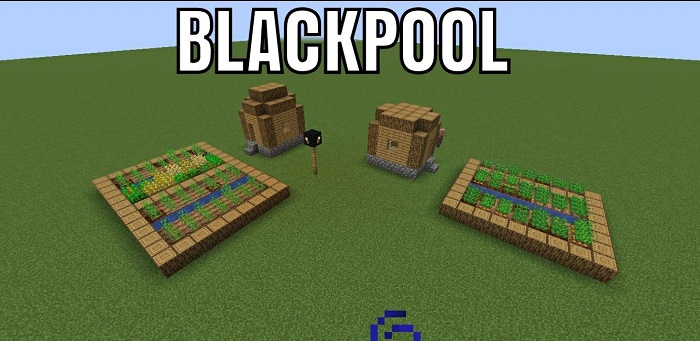
sweet heaven above you know what's great? british TV. Here's some of my recommendations.
Charlie Brooker's Screenwipe/How TV Ruined your life
Scathing reviews of news media, TV, and movies from 2008~2012, by the now-famous Black Mirror writer. Tonally Brooker's dialogue on the couchtop show reminds me of Jim Jeffries' standup about digging a broken vibrator out of his ass. It's beyond gross but also kind of alluring, you're a bystander to a clowncar pileup. Describing celebrities as "melted wax approximations" and parliament as a "congregation of shuffling cadavers" is true poetry. His incessant contempt for saccharine reality shows and sensationalist news is a refreshing counterbalance to the artifical chumminess of corporate programming.
And despite the sarcastic, caustic tone, the show manages to carry a healthy dose of humanity. The segments praising late British animators or composers
sound exceptionally genuine. Brooker's reflections on their influence in his own childhood is an intimate rarity among the pools of disingenuous noise on TV. Either Brooker had a heavy, personal hand in the script, or the other writers really know how to frame everything as if it's a journal.
I've had these prehistoric shows playing in the background on and off for 3 years now. It's frankly a bit cathartic within this hellish daily news stream we've all been subjected to.
Adam Curtis Documentaries
The Supersizers go....
A Food critic and broadcaster join hands to eat period-correct food for a week. French Revolution, WWII rationing, Restoration England, etc. Great insights into etiquette and class connotations in something as banal as food. Giles looks like a fucking amphibian when he eats.
7 Up
A fascinating documentary that grants a look into Britons from around the country. Interviews occur every 7 years, with themes of class, race, divorce, employment, introspection. Most recent installment is 56 Up, but another is to be expected next year. As an American I found it surpising how even as kids, the interviewees understood their social standing.
Living in the Past
A 1978 BBC documentary, it follows 15 people living in a remote Polish forest with no modern technology. 3 are children, and besides a finite amount of starting resources, the group is left to their own devices to learn and thrive off the land for 1 year. A 2008 follow-up catches their thoughts after going back to the modern world.
I do wish it went deeper in their daily schedules and resources status. Hearing one of the participants' say that modern footwear was their number 1 desire was a surprise.
1900 House
Actually produced by PBS but it's fair to assume most people involved in the production were British. It's another branch of historical reenactment TV, filmed in 1999 over a period of 2 months. The family involved must dress, eat and live in a period-correct 18th century house. You seem them toil, acclimate and appreciate the various aspects of daily life that this sort of project accenturates. The women in the show are the most striking. They're either rendered catatonic by boredom, forced indoors like a sort of grey Afghanistan or they're toiling in 18 hour workdays.
Back in Time for Dinner
A BBC show where one family eats according to a certain historical period, one day acting as one year of that decade.
Keith Floyd
Been watching Keith Floyd's travel-cooking shows lately. As the gruff sort of spotted-hand presenter, Floyd necks more alcohol than a biofuel engine. Every episode is a hit with its authenticity, cooking whatever country's cuisinehe visits. An easy watch.
Tales from the Green Valley
marathonned the BBC Wales farm series
, a show about experimental archaeology. Much like
Living in the Past
a few people live according to a set historical period, this time they're historians. The victims build daub structures, look after animals, and grow crops over a period of a year in the Welsh countryside. While it's not as fact-dense as
The Supersizers
or as punishing as
1900 House
, the show is a good balance between "whoa isn't this miserable" toil and novel childlike discovery. Tudor Monastery
shot in 2013 is the most accessible out of the series but it feels more produced and polished, the addition of a narrator seems redundant to me when you've got all these experts in the thick of it. I also miss the 5 historians instead of the later 3. The series pilot Tales from the Green Valley
has this gruff candor that's just right, a warm hug from your sweatered grandfather.
Created 8/30/18
more shows comin'
back to top ⤴

I’m currently on another planet, namely Japan, which for the average Westerner is an experience tantamount to recovering from a serious head injury, in that while the world around you is largely recognisable, it somehow makes little sense. Westerners have been confounded by Japanese TV for decades, ever since Clive James amused millions in the eighties with clips from a gameshow called Endurance, in which contestants had to undergo a series of increasingly painful and humiliating ordeals. For British viewers, much of the fun came from sheer outraged disbelief that watching people being physically tormented and degraded was considered entertainment.
But of course that was 100 years ago, before I’m a Celebrity
transformed low-level torture into mainstream British fare. Nonetheless, you don’t have to watch Japanese TV for long until you see something shocking. The other evening I watched a programme in which a man was shown spooning boiling molten metal into his mouth. This was followed by footage of a man being mauled by a tiger and a rib-tickling sequence in which a studio guest was deliberately poisoned by some kind of sea creature.
Generally though, the TV here is surprisingly dull. The vast majority of programmes consist of several seriously overexcited people sitting in an overlit studio decorated like a novelty grotto made from regurgitated Dolly Mixture, endlessly babbling about food. For a nation so preposterously hi-tech, it’s a curiously old-fashioned approach to television. People talking in studios. Forever. Like it’s the fifties. And yet it’s insanely agitated: as though the participants are simply too wired to make a proper TV show, and have subsequently just switched the cameras on and started yelping. The adverts continue this vaguely old-school theme. There are plenty of super-sophisticated ones starring giant CGI cats and the like, but there’s also a rather charming emphasis on dancing: people unpretentiously dancing and singing about the product on offer (generally a foodstuff, which presumably explains their terrifying level of excitement). It makes the Go Compare tenor seem subtle. Sedate, even.
But while onscreen Japan offers up old-fashioned fodder with an unhinged, frantic glee bordering on malevolence, the moment you step outside, the population itself seems incredibly calm, as though faintly mesmerised by the screaming technology surrounding them.
- Charlie Brooker I Can Make You Hate
One of my most fondly held memories is watching Japanese variety shows with my mom on a tiny CRT, getting roasted by a heatlamp in January. Japan is fucked in a torrent of reasons but their TV beats the shit out of anything on American cable.
ピタゴラスイッチ/PythagoraSwitch
Famous for their Rube Goldberg machine segments, Pythagora Switch is a long-running childrens show that has a deceptively wide appeal. This was the show I was glued to on my trips to Japan, sitting on gran's sweaty turcoise sofa.
It's a 15-minute show with different segments about science and Japanese. It's got a distinctly lo-fi atmosphere that proves you don't need colorful sets to teach concepts to audiences. Some segments are enlightening even for adults, covering how technicians use bubble solution to detect gas leaks or the techniques dentists use to correct overbite. The geriatric 40-somethings who work on the show have quantified what childhood curiosity looks like, answering questions about the world with a simple clarity.
修理、魅せます
Originally streamed on the now-defunct Nintendo Wii No Ma, this 14-episode series follows craftsmen and women at their best. Restoration is the central theme, from blown-out photos to tattered denim jeans. Nostalgia is truly my kryptonite and this series digs deep, the items sent for repair because of their owners' attatchment to them. My absolute favorite is the English dictionary being passed down from father to daughter with the crossed-out crush's name being on the "please make this disappear" checklist.
サラメシ/Salameshi
Nowhere else can you find a show with this much humanity. Voiced by the eternally youthful Nakai Kiichi, the show outlines lunches of the working class. Simple stuff but it gives you a rare, unobscured on how various people live. Family-run businesses, farm workers, blue-collar wageslaves, airport staff, racecar drivers, the whole spectrum is there. The whole thing is so upbeat, so chock full of humanity, if it was a song it'd be 上を向いて歩こう.
You could be on the edge of a bridge and watching this show will make your plunge a bit more pleasant.
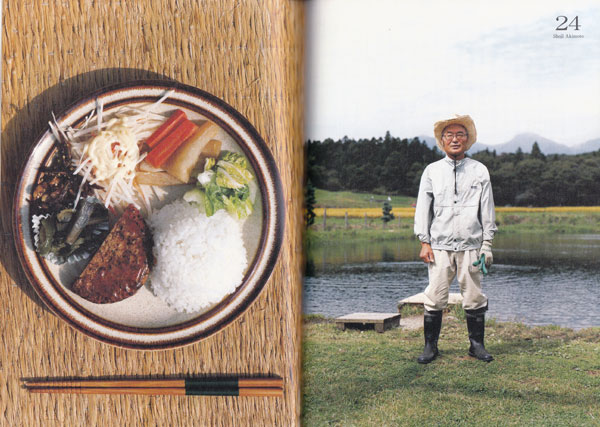
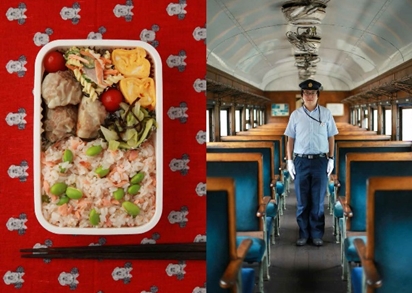
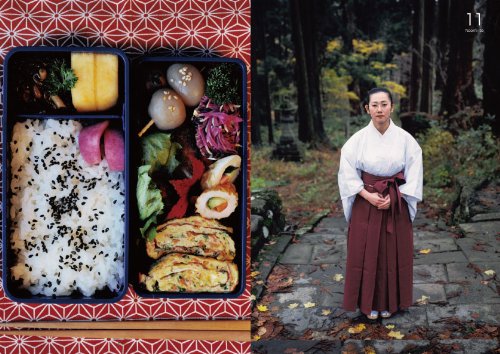
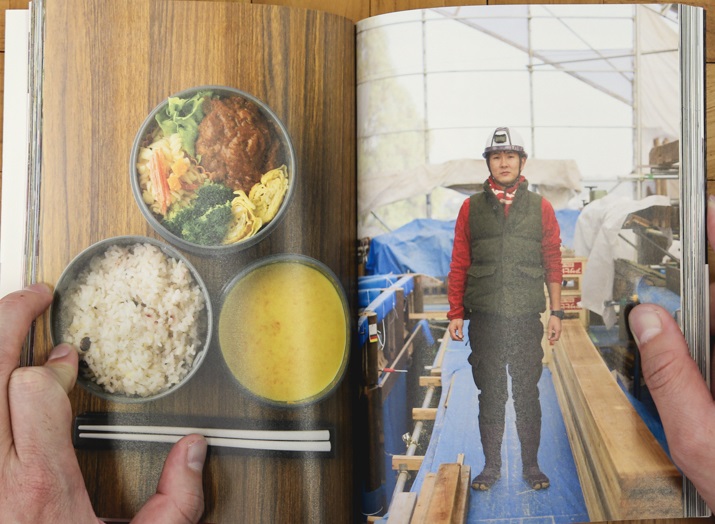
ザ・ノンフィクション
Good journalism is hard to find in Japan, with the mainstream new organizations stripped of any controversy and tabloids splattered with text you wouldn't wipe an orifice with. Documentaries are one sporatic jewel in the media basket however, and The Nonfiction
is the most readily accessible. The various topics the TV series covers can vary from an egotistical starving artist to a single parent dying from cancer. Human interest is front and center, with the show focusing on only a handful of faces through the 45-minute run. One aspect I was surprised by the occasional derision the TV shows presents the people in it, regardless of whether they deserved it.
家ついて行っていいですか?

Another voyeuristic human interest show, a sort of downtrodden Cribs.
People are front-and-center as the cameramen follow random background characters to their houses, to which the victims spill something about themselves. There's Ultraman fans making original monster costumes to uni students with ADHD living in trash-ridden hovels. It's cheaply made, lacking background music or more than one production staff but effectively distills people down to a few sympathetic details. It's a fantastic shot of empathy in a country where you pretend to ignore the thousands of nodding heads you walk by every day. 9/16/2020
Found the "Can I Follow you Home" episode
with the drunk guitar-toting single dad joking that he wants to die. The newest episode is fantastic, Dagashi shop run by an old man. Used to run a resturaunt, does Sadō, runs the shop for the kids. Human interest at its best. 10/29/2020
Watched the "Can we follow you home" 4 hour episode
with _ lurking in the background. The man who dedicated his life to traditional japanese pottery is goals, I love his demeanor and outlook on life. The guy describing his late dad's personality as "childlike" really stuck with me. I also want a sunken hearth somewhere in my house. 12/1/2020
人生の楽園
It's lovely. One had a hotel-worker turned baker in Ibaraki, extensively using local ingredients. There's this radiating sense of community that more plasticine Japanese shows lack. 10/29/2020
NHK ETV 特集
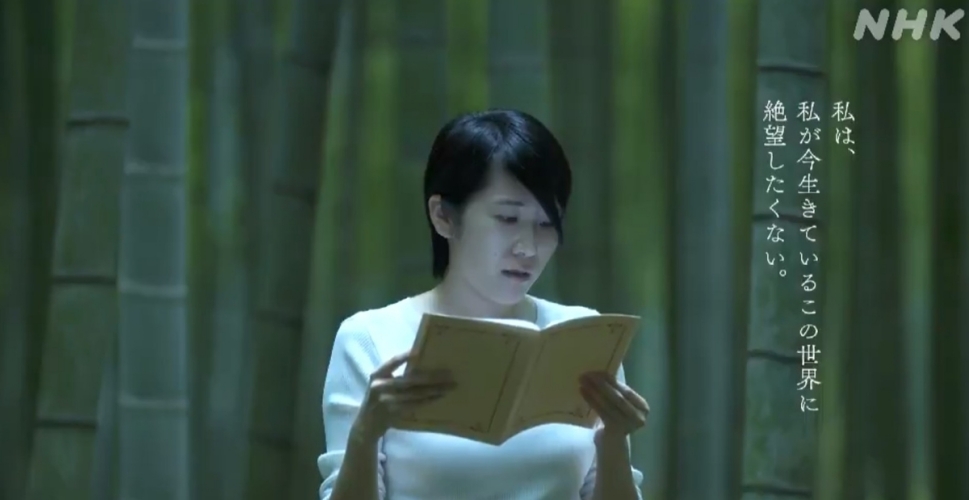
Watched the ETV special 転生する三島由紀夫
, an hour-long documentary on Mishima Yukio's works and the context they were born out of. It's a stunningly shot show, velvety narrations and trees rustling filing in for the complete lack of background music. There were clips of a play based on Mishima's novels and it's just the worst. All the actors sounding like they're about to burst into tears describing Mishima's thematic stink, the fragility and transience of man, the beauty prior to destruction, all distilled down to two glistening student actors kissing through saran wrap. My opinion of Mishima has changed to one of pity in recent years. He seemed to carry the insecurities of the short, vulnerable, sickly child he once was, trying to grasp a hyper-masculine ethnonationalist ideal he could never reach himself or had relinquished the oppourtunity to do so in dodging the draft. He was obsessed with his image, of his sentimentality regarding a country that had brought its own destruction through imperial ambitions. Mishima got his perfect death and with it, the members of his right-wing paramilitary group were left with his selfish apolitical motivations. The documentary had an oddly reverent air regarding the Tatenokai, even managing to interview a few former members. What a shithole country Japan was, training civilian monarchist larpers at actual military bases. The message sent to Tatenokai members after Mishima's suicide sounded like a parent reprimanding their NEET offspring. "Get a job, get married.." 11/28/2020
Caught the NHK ETV special
on TV, mom actually watched it with me. A very somber documentary about hikkikomori structured around very personal journal entries narrated by their authors. It outlined their worries, their family dealings, their approaches to an otherwise unsavory lifestyle. Beautifully shot as always, the contrast of footage between yellowed spinning microwaves and crumbling cut-price apartments with bamboo forests and coastlines was especially jarring. They all more or less had the sensation of being left behind in society. 12/5/2020
福島をずっと見ているTV
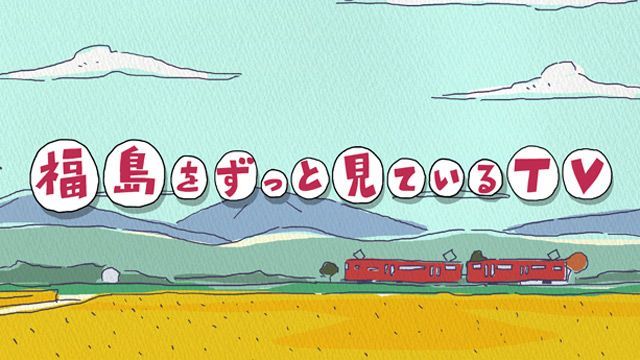
The third show, 福島をずっと見ているTV
, was a heartbreaking look into the nuclear power station in Fukushima prefecture filmed around 2014. It mainly followed the tide of issues the reactor management staff have to face. The workers' blurred faces dotting the footage, being silently ferried in Tokyo Electric buses like they're being sent off to war. Fatalism is a common theme in Japanese sociology and this show was no exception. Staff retention for such a specialized and precarious job is problematic, some workers haven't told their families they work near the reactor, leaks sprung from Thorium wastewater tanks as they were even filming, it was a torrent of successive (measured) misery. The little things stuck with me like how the photojournalist wrapped his camera in saran wrap and how workers sat on the floor to silently eat prepackaged meals while still dressed in their PPE. Atleast they have PPE and aren't homeless laborers picked off the street in Kamagasaki, quite the colorful past Tokyo Electric has. The whiplash from these thoughtful perception-dialating shows to vapid late-night anime trash is really a slap in the face. I'm for sure going to wake up tomorrow reset as a normal human being, waiting again for that burst of something profound to bring me back to this feeling. 11/28/2020
The latter half of 福島をずっと見ているTV
played after, a remarkable follow-up to the footage near the Tokyo Electric nuclear reactors. They managed to interview 7 or so current and former workers on the site. They spoke of chronic manpower shortages, lingering anxieties about exposure, of state compensation disappearing through the grapevine of subcontractors. Harrowing stuff. 12/5/2020
達x達

Discovered 達x達, a TV show that pits two industry veterans to interview each other. Ghibli director Toshio Suzuki and novelist Kaitaro Tsuno were on. The atmosphere is loose like a day-long shochu binge with 2 uncles. Suzuki describing his work as personal relationships (especially between Miyazaki and Takahata) is something. Ghibli only has around 150 employees, a stunningly low amount for a studio with such worldwide soft power notoriety. Made me realize I've been overthinking things. Even in something as distant to me as animation, making something compelling, something that resonates with you is what's important. The question is whether I'll land somewhere that permits that kind of thinking. He also said Miyazaki and Takahata's works were driven by the distant allure of Europe, with the messy post-war politics of Japan and the US on their minds. Totoro was originally set in 1955 Japan and investors were hesitant because they had lived through that period. Those feelings eventually transferred into the production of Grave of the Fireflies. The other thing is that both men were old as shit. I've readily discarded the promise that you're never too old to make it, but both of their careers shot upwards when they were well into their 30's. For me aging has always been a slow death. External from how well a particular year has gone for me I've never been able to definitely say I've grown as a person. Interests have expanded, skills have improved, but never "growth." 11/28/2020
かりそめ天国
Last week's かりそめ天国 was fantastic.
There was a bit where two comedians compete to illicit the most "wow" moments while reviewing a resturaunt or store. One makes several stops of a ramen chain where each resturaunt is run by the founder's siblings and they all expectantly ask whose cooking is the best. The other comedians explore a Hokkaido-centric supermarket and try to illicit "wow" facts by bringing up trivia about their home province instead. After minutes of reviewing cheese and meat lining the shelves they're whittled down to silence, Hokkaido solidly defeating Tochigi Prefecture. Both instances are iconoclastic, trashing the infalliable laws about food shows on Japanese TV, putting the presenters in awkward situations or ignoring what they're reviewing completely. No more glassed-over eyes going "mmmm that's good" after a mouthful. 4/10/2021
内村さまぁ~ず
One of my favorite segments on jp TV was the annual health checkup bit on 内村さまぁ~ず.
A group of comedians undergo health examinations and get quizzed on their well-being. They'd play Heads Up with cards that have their uric acid levels and guess who had the largest arterial plaque build-up. My favorite bit was when one of them was just told "you have tuberculosis."11/29/2021
created ?
merged 11/20/21
back to top ⤴